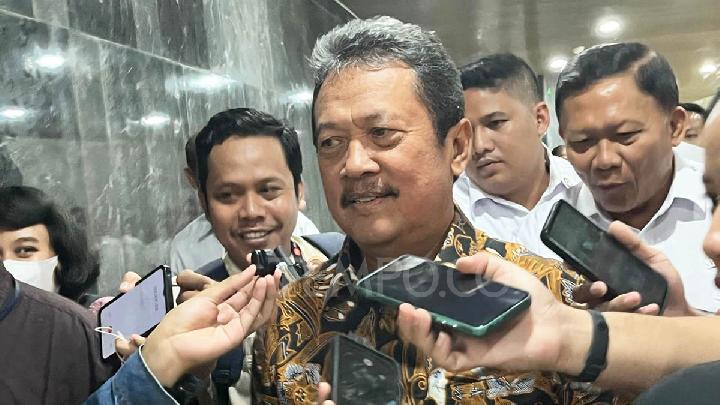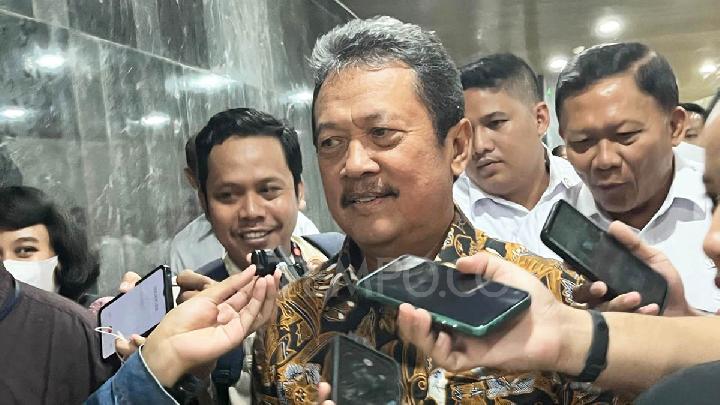
Lobster Seed Smuggling Costs Indonesia Up to Rp16 Trillion Annually
Overview of Smuggling Impact
On September 10, 2025, Indonesian Minister of Maritime Affairs and Fisheries, Sakti Wahyu Trenggono, disclosed that the nation incurs losses of approximately Rp16 trillion each year due to the smuggling of lobster seeds, primarily attributed to activities originating from Vietnam. This alarming figure highlights the significant economic impact of illegal fishing practices on Indonesia’s marine resources.
Discovery of Smuggling Activities
During a working meeting with the House of Representatives’ Commission IV on September 3, 2025, Minister Trenggono elaborated on the issue of lobster seed smuggling. The problem came to light during an evaluation of Indonesia’s lobster cultivation partnership with Vietnam. The two countries had previously established a joint venture (JV) aimed at producing up to 30 million tons of lobsters monthly for one year. However, this ambitious production target was not met, largely due to the illicit export of lobster seeds from Vietnam.
Termination of Cooperative Efforts
In light of the smuggling revelations, Minister Trenggono indicated that Indonesia would be terminating its cooperative efforts with Vietnam. Furthermore, he has urged President Prabowo Subianto to issue a presidential regulation (perpres) specifically addressing the issue of lobster seed smuggling. If enacted, this regulation would render the existing Minister of Maritime Affairs and Fisheries Regulation No. 7 of 2024, which governs the management of lobster (Panulirus spp.), crab (Scylla spp.), and prawn (Portunus spp.), obsolete. This regulation currently provides a legal framework for the exportation of lobster seeds and allows investors to engage in lobster cultivation within Indonesia.
Measures to Combat Smuggling
To address the ongoing issue of lobster seed smuggling, Minister Trenggono’s ministry is actively implementing strategies to cultivate lobsters independently. This initiative is being conducted through modeling schemes at the Marine Aquaculture Institute located in Batam, Riau Islands. Trenggono expressed concern over the loss of baby lobsters, stating, “Our baby lobsters, which number in the billions in the Indonesian waters, are almost like they’re flying out.” This metaphor underscores the urgency of the situation and the need for effective management and protection of Indonesia’s marine resources.
Hatching and Cultivation Efforts
The Ministry of Maritime Affairs and Fisheries has undertaken significant efforts in lobster seed hatching since October 2024. Over the past year, the ministry has conducted four hatching cycles. The first three cycles, which took place from October to December 2024, produced a total of 33,143 lobster seeds. In 2025, two additional hatching cycles were completed in July and August, yielding around 8,000 seeds. These hatching activities encompass various stages, including seeding, feeding, and maintenance of the seeds.
From these cultivation efforts, approximately 1.7 tons of lobsters have been harvested thus far. Currently, there are 144 lobster farming units operating within the designated cultivation area. Minister Trenggono has ambitious plans to expand this number significantly, aiming to establish up to 2,000 farming units by the following year.
Conclusion
The smuggling of lobster seeds poses a substantial threat to Indonesia’s marine economy, leading to significant financial losses and hindering the country’s potential for sustainable aquaculture. The government’s response, including the proposed presidential regulation and increased domestic cultivation efforts, reflects a commitment to protecting Indonesia’s valuable marine resources. As the ministry continues to enhance its lobster farming initiatives, it remains crucial to combat illegal activities that undermine these efforts.
Key Facts
– Minister Sakti Wahyu Trenggono reported annual losses of Rp16 trillion due to lobster seed smuggling.
– Vietnam is identified as the primary source of the smuggled lobster seeds.
– Indonesia’s joint venture with Vietnam aimed to produce 30 million tons of lobsters monthly but fell short due to smuggling.
– A proposed presidential regulation could replace the current Ministerial Regulation No. 7 of 2024.
– The Ministry has conducted four hatching cycles since October 2024, resulting in the harvest of approximately 1.7 tons of lobsters.
– There are currently 144 lobster farming units in Indonesia, with plans to increase this number to 2,000 by next year.
Source: en.tempo.co
